Hindu weddings are a grand affair with many rituals and ceremonies. Here are some of the key elements of a traditional Hindu wedding in Tamil Nadu:
- Pre-wedding rituals: The wedding preparations begin with the Vratham, a ceremony in which the bride and groom fast and pray for the blessings of the deities. This is followed by the Nischayathartham ceremony, where the families of the bride and groom meet and exchange gifts, and fix the wedding date.
- Mehendi ceremony: The Mehendi ceremony is a fun-filled event where the bride’s hands and feet are adorned with intricate henna designs.
- Kalyanam: The wedding ceremony itself is called Kalyanam. It typically takes place at the bride’s house or a temple. The groom arrives at the venue with his family and friends, and is welcomed by the bride’s family.
- Maalai Maatral: The bride and groom exchange flower garlands during the Maalai Maatral ceremony, symbolizing their acceptance of each other as life partners.
- Oonjal: The bride and groom are seated on a swing decorated with flowers and silk, and are rocked gently as relatives sing traditional songs.
- Kanyadaanam: The father of the bride gives his daughter’s hand in marriage to the groom during the Kanyadaanam ceremony.
- Mangalsutra: The groom ties a sacred thread (mangalsutra) around the bride’s neck, signifying their union.
- Saptapadi: The bride and groom take seven vows and make seven rounds around the sacred fire, pledging to support each other in every aspect of life.
- Sindoor: The groom applies sindoor (vermilion powder) on the bride’s forehead, symbolizing her status as a married woman.
- Reception: After the wedding ceremony, a reception is held where the newlyweds are introduced to the guests and receive their blessings.
Overall, a traditional Hindu wedding in Tamil Nadu is a beautiful and elaborate affair that involves the entire family and community in the celebration of love and commitment.
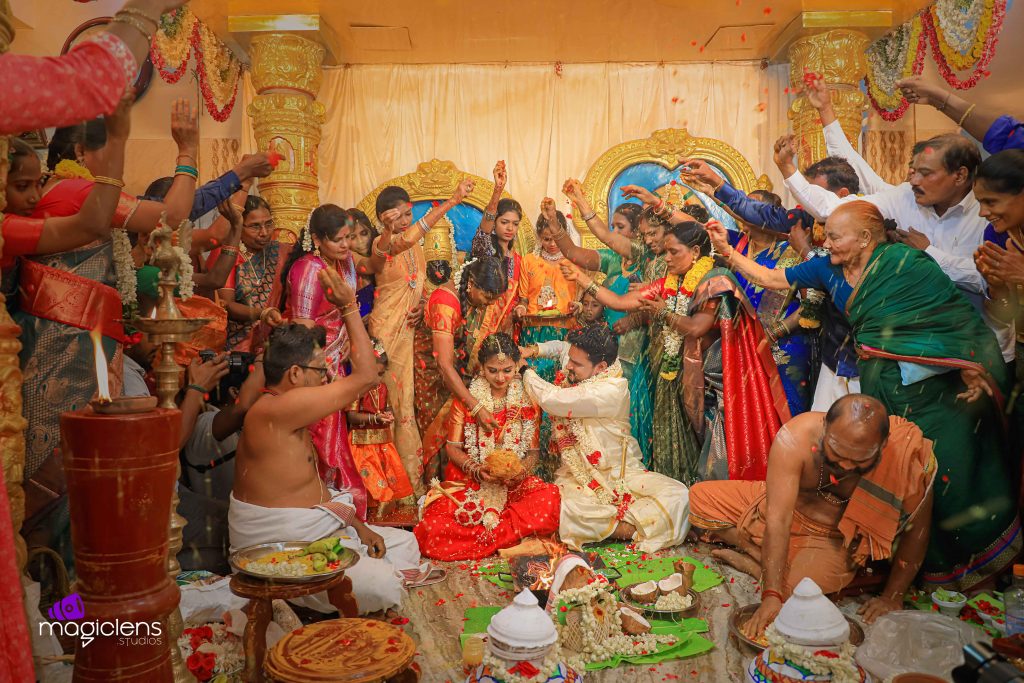
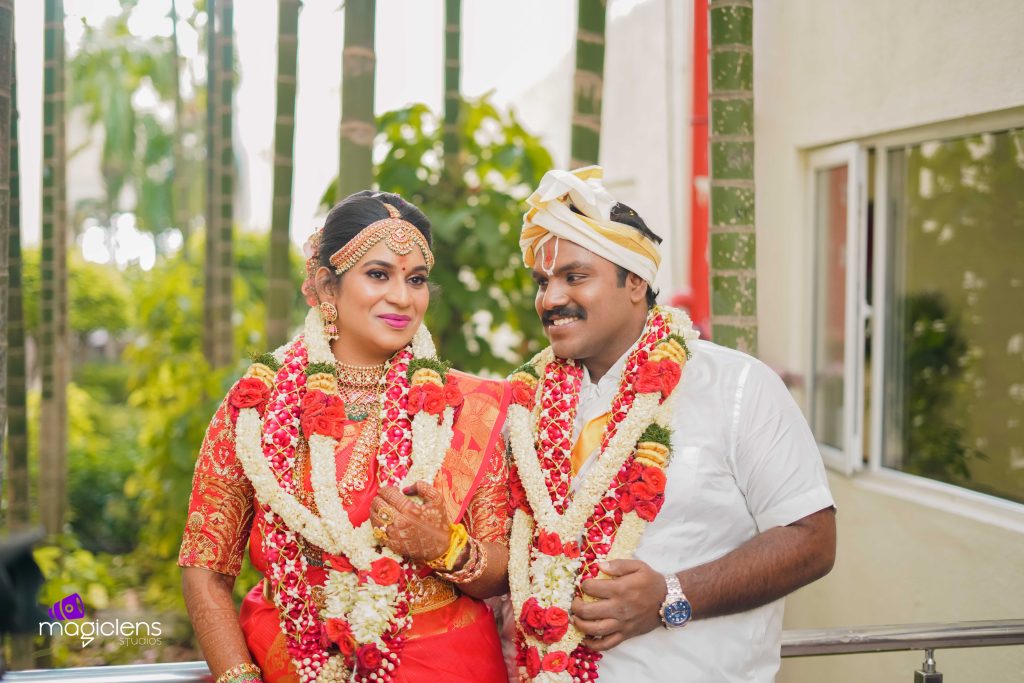
Nikah is a Muslim marriage ceremony that is performed in Tamil Nadu as well as other parts of India. Here are some of the key elements of a Nikah ceremony in Tamil Nadu:
- Pre-Nikah rituals: Before the Nikah ceremony, the families of the bride and groom meet to discuss the marriage proposal and finalize the marriage contract known as the “Nikahnama”. The bride’s family may also organize a Mehendi ceremony where the bride’s hands and feet are adorned with intricate henna designs.
- Nikah ceremony: The Nikah ceremony usually takes place in a mosque or an Islamic community center. The ceremony is officiated by a religious leader who reads out verses from the Quran and explains the rights and obligations of the couple .
- Mahr: The groom is required to give a gift or a “Mahr” to the bride as a token of his commitment to her. The Mahr can be in the form of money, jewelry, or any other valuable item that is mutually agreed upon.
- Acceptance of proposal: The bride and groom formally accept each other as life partners by repeating the phrase “Qubool Hai” (I accept) three times in the presence of witnesses.
- Signing of Nikahnama: The marriage contract or the Nikahnama is signed by the bride, groom, and the witnesses in the presence of the religious leader.
- Dua: The ceremony concludes with a prayer or a “Dua” for the happiness and success of the couple.
- Walima: A wedding feast or a “Walima” is held after the Nikah ceremony, where family and friends gather to celebrate the union of the couple.
Overall, a Nikah ceremony in Tamil Nadu is a sacred and joyous occasion that celebrates the union of two individuals in the presence of their loved ones and the blessings of Allah.
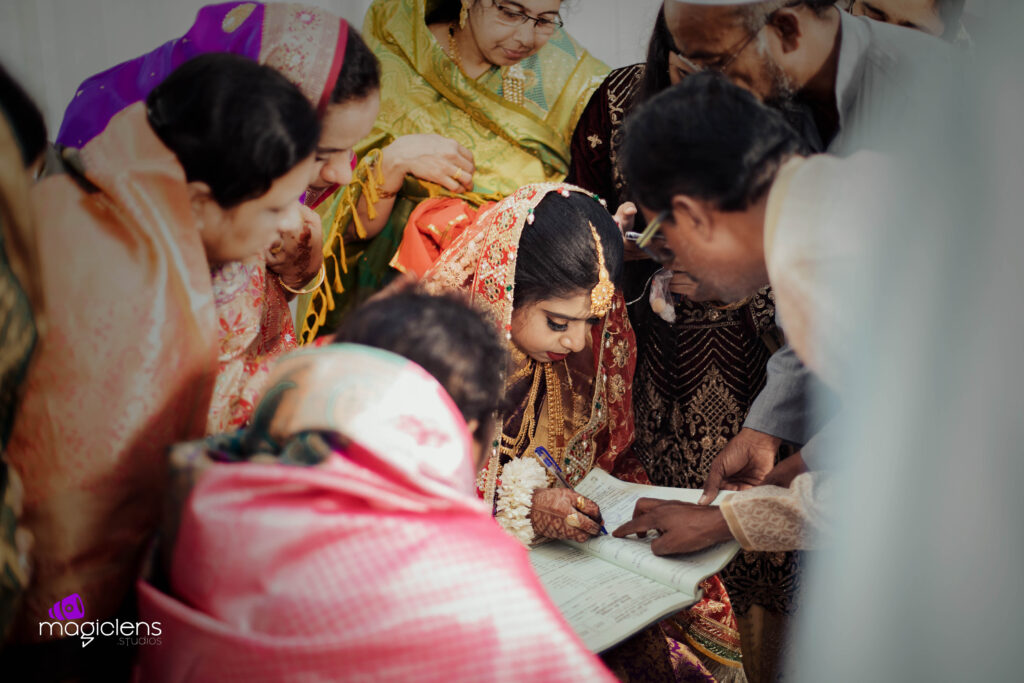
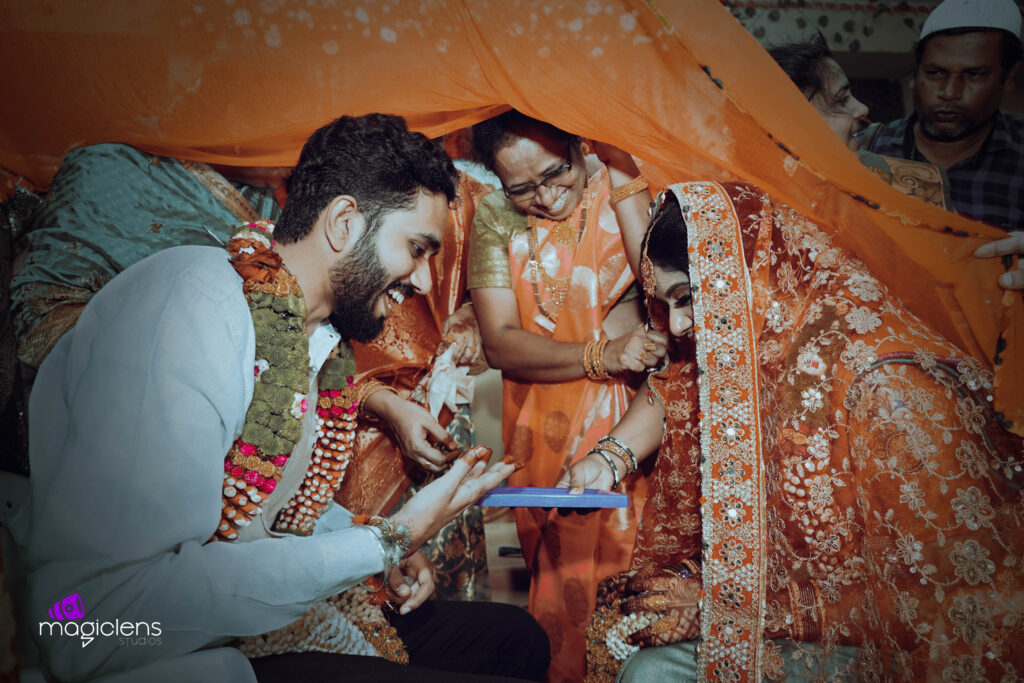
- An Indian Christian wedding is a beautiful blend of Christian traditions and Indian customs. These weddings are celebrated with great joy and enthusiasm, and often involve multiple days of festivities.
- The ceremony typically takes place in a church and the bride and groom exchange vows and rings in the presence of a priest or minister. The wedding ceremony may be conducted in English, but it is also common to include prayers and hymns in the local language.
- Before the wedding day, the bride’s family typically hosts a mehndi ceremony, where intricate henna designs are applied to the bride’s hands and feet. The groom’s family may host a sangeet ceremony, which is a musical celebration where both families come together to sing and dance.
- On the wedding day, the bride typically wears a white wedding gown, while the groom wears a suit or a tuxedo. The couple may also wear traditional Indian wedding attire, such as a saree or a sherwani.
- After the wedding ceremony, the couple typically participates in a reception, which may include a dinner, cake cutting, and dancing. Indian Christian weddings are known for their vibrant music and dancing, and guests are often encouraged to participate in the celebrations.
- Overall, an Indian Christian wedding is a beautiful celebration that reflects the rich cultural heritage of India, as well as the couple’s commitment to their Christian faith.
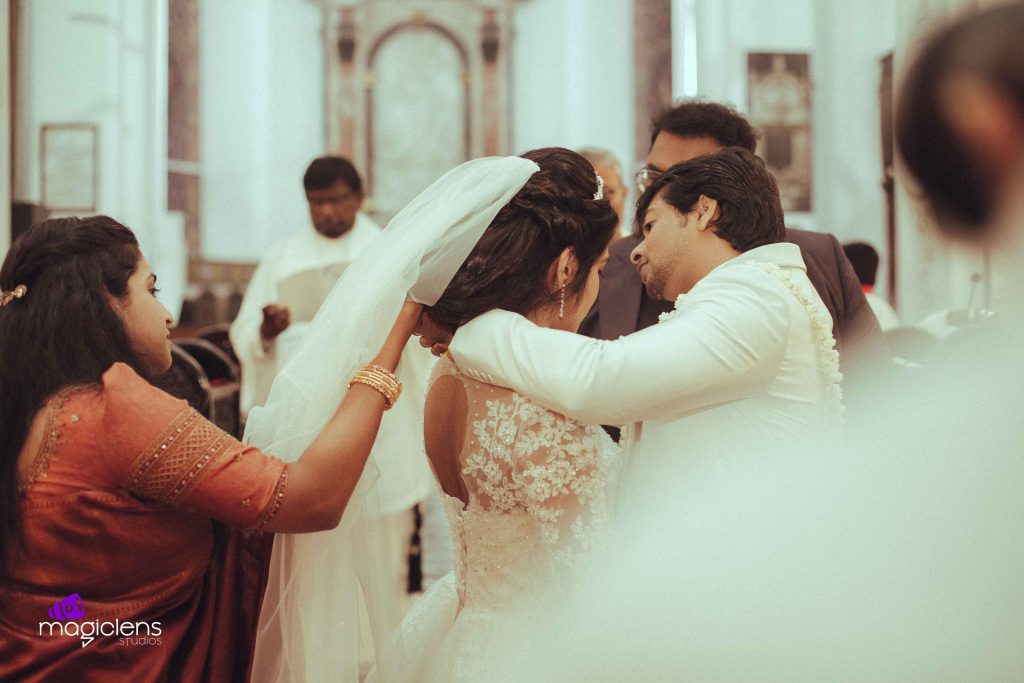
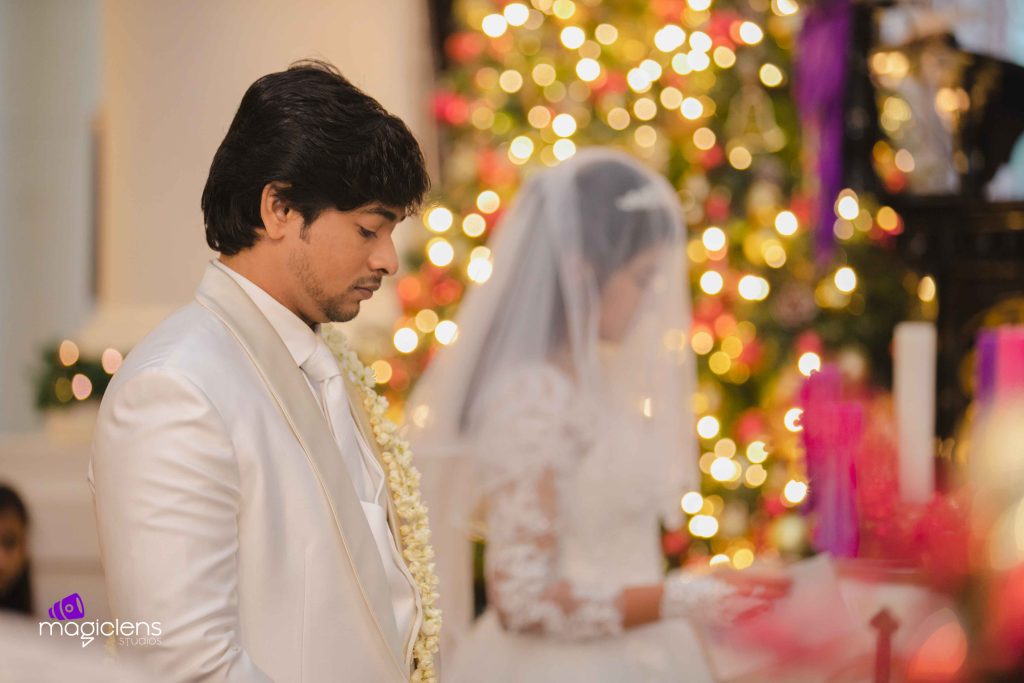
A Telugu wedding is a traditional ceremony in the southern Indian state of Andhra Pradesh and Telangana. Telugu weddings are known for their rich cultural heritage and are typically a grand affair that lasts for several days. The wedding ceremonies typically begin with the Nischayathartham or the engagement ceremony, where the bride and groom exchange rings in the presence of family and friends. This is followed by the Pellikuthuru ceremony, where the bride is gifted new clothes and jewellery by her family.
On the day of the wedding, the groom arrives at the wedding venue on horseback or in a decorated car and is welcomed by the bride’s family. The bride and groom exchange garlands and take seven vows, which are known as Sapthapadi. During the wedding ceremony, the bride typically wears a traditional Kanchipuram saree, while the groom wears a silk dhoti and kurta. The bride’s hair is adorned with flowers and jewellery, and she also wears a traditional gold necklace called a mangal sutra, which symbolizes the marital bond.
After the wedding ceremony, the newlyweds typically take part in a reception, where family and friends greet them. The reception may include a meal, music, and dancing.
Overall, Telugu weddings are a celebration of the couple’s commitment to each other, as well as their cultural heritage. They are known for their vibrant colours, intricate decorations, and traditional customs, and they are a beautiful representation of the rich cultural heritage of India.
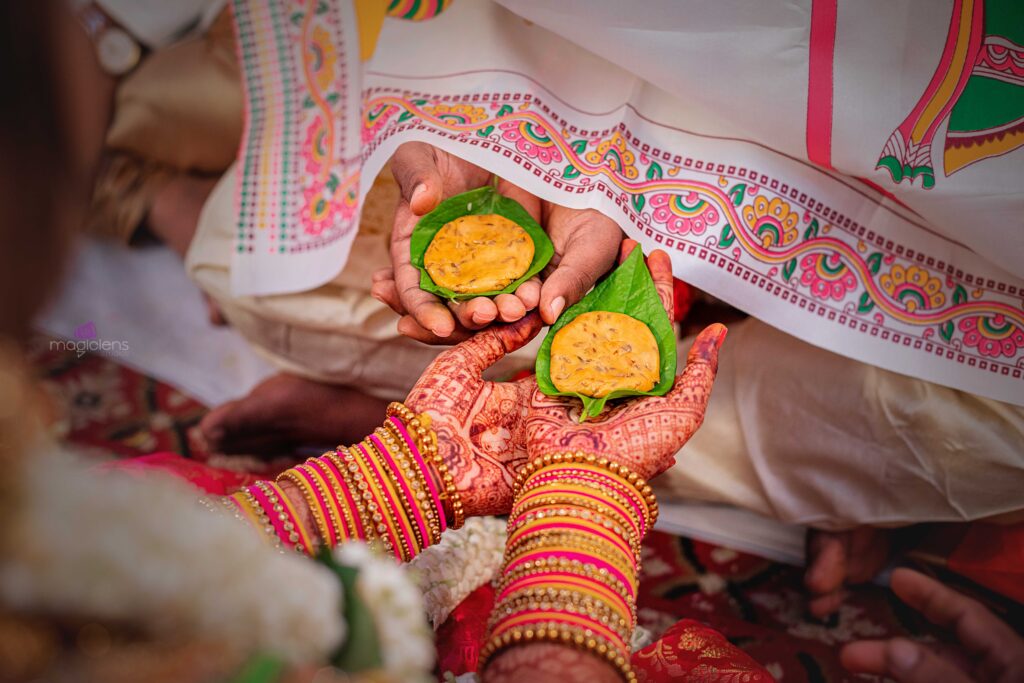
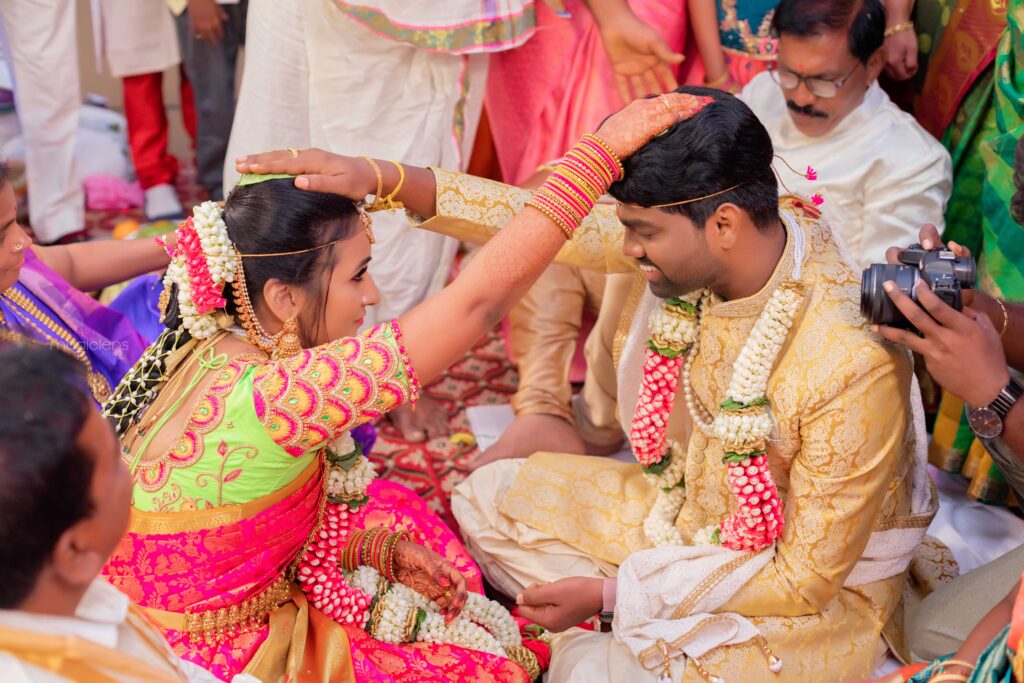
Extraordinary Events, Extraordinary Photography
For the best wedding photography in
- Chennai
- Coimbatore
- Erode
- Salam
- Tirupur,
- Salam
And other towns in and around Tamilnadu contact Magiclens Studio Chennai. We cover weddings of
- Hindu,
- Nikah,
- Christain weddings
For various southern states of India. We also cover high-profile weddings ensure to capture all the VIP who comes to bless the couples.

